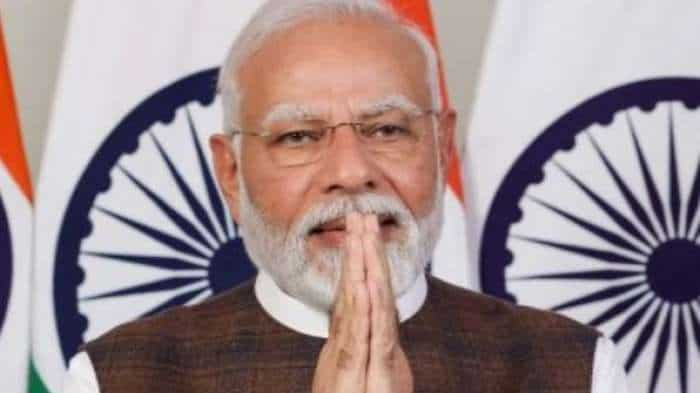Reliving Partition! The shadow of 1947 lingers over us even today, says former IFS officer Navdeep Suri
"The Partition of Punjab and Bengal were among the bloodiest chapters in our history. Millions died and many more were uprooted from their ancestral homes. The shadow of 1947 lingers over us till today and it is important to understand and remember that history," says Navdeep Suri.

He feels that while we celebrate the many achievements of India in the 75 years since independence, it is also worth pausing for a moment to reflect on the terrible price that was paid to get there.
"The Partition of Punjab and Bengal were among the bloodiest chapters in our history. Millions died and many more were uprooted from their ancestral homes. The shadow of 1947 lingers over us till today and it is important to understand and remember that history," says Navdeep Suri, translator, Distinguished Fellow at ORF (Observer Research Foundation) and former Indian Foreign Service (IFS) officer.
Suri, who has recently translated his grandfather, legendary Punjabi writer Nanak Singh`s `Khoon de Sohile` written 75 years back as `Hymns in Blood` (HarperCollins Publishers India) coinciding with the country`s 75th year of Independence Day, insists that the book is as relevant to this day as when it was written. `Hymns in Blood` recounts the horrors of the Partition and the exodus of Hindu and Sikh communities from a village near Rawalpindi that they had inhabited for generations. It is unsparing in its narrative of the trauma of violence and pillage but also encompasses many layers that help to understand the multiple dynamics.
"Through the storyline and the characters, this novel pushes the message that commitment to humanity is more important than religion itself. And it has an enduring message for these times: Beware of leaders who rouse religious passions and try to divide the nation on communal lines. Beware the inferno that communal passions can unleash. Because once it begins, it leaves a trail of destruction in which there are no winners. Just mourning communities... Also, some of the strongest characters in the book are Muslims who stand by their Hindu and Sikh neighbours, willing to sacrifice their own lives to protect them," says Suri, whose last translation was `Khooni Vaisakhi` by Nanak Singh, who has to his credit 59 books including 38 novels, each talking about social change and boasting powerful narratives that have found readers across generations.
Singh wrote `Khooni Vaisakhi` post surviving the Jallianwala Bagh massacre. Its translation was published to coincide with the centenary of the massacre in 2019.
Thrilled that major works from across Indian languages are being translated into English and thus inviting a universal readership, Suri smiles that his grandmother would always say that Nanak Singh would have been a celebrity if he had been writing in a language other than Punjabi. "My endeavour is to bring his works - and his message - to a wider audience through the medium of translation. This is clearly a golden moment for translation and the fact that Geetanjali Shree`s `Tombs of Sand` - a translation from the original in Hindi - has won the International Booker Prize, speaks volumes."
He feels that the state government in Punjab can play an important role when it comes to translating Punjabi literature into English and other languages. "To start with, they must realize that translations of classic works of Punjabi literature are an element of soft power. When they promote and project Punjabi culture to a wider audience and help in building an understanding of the state. Besides, that also expands our literary heritage. Some states take this aspect quite seriously and it is time that Punjab also supports such endeavours."
Considering he translates the works of his grandfather, Suri admits that he did feel pressure while working on `Pavitra Paapi` (`The Watchmaker`). "I was a bit hesitant about how members of our own extended family and others would view it. Now I am confident that I can do justice to at least some of his novels," he adds.
Currently working on Singh`s `Agg di Khed`, the sequel to `Hymns in Blood`, he may also translate works including `Ik Myan do Talwaran`, the author`s classic on Kartar Singh Sarabha and the Ghadar movement.
While he has no plans to write fiction at the moment, but may consider a book on foreign policy, Suri says that the Pandemic-induced locked downs gave him the time and space to concentrate on translating `Hymns in Blood`. "But of course, it was heart-rending to see the plight of those who were less fortunate than us," he concludes.
Get Latest Business News, Stock Market Updates and Videos; Check your tax outgo through Income Tax Calculator and save money through our Personal Finance coverage. Check Business Breaking News Live on Zee Business Twitter and Facebook. Subscribe on YouTube.
10:27 AM IST











 Independence Day Special: Key features & benefits of Sukanya Samriddhi, Mahila Samman, other schemes focused on women’s financial freedom
Independence Day Special: Key features & benefits of Sukanya Samriddhi, Mahila Samman, other schemes focused on women’s financial freedom Independence Day 2024: boAt launches special edition Nirvana Ion ANC at Rs 3,499
Independence Day 2024: boAt launches special edition Nirvana Ion ANC at Rs 3,499 Google Doodle celebrates Independence Day 2024 with India’s architectural marvels
Google Doodle celebrates Independence Day 2024 with India’s architectural marvels  Delhi under thick security blanket ahead of Independence Day
Delhi under thick security blanket ahead of Independence Day IndiGo inducts 77 female pilots to mark Independence Day
IndiGo inducts 77 female pilots to mark Independence Day